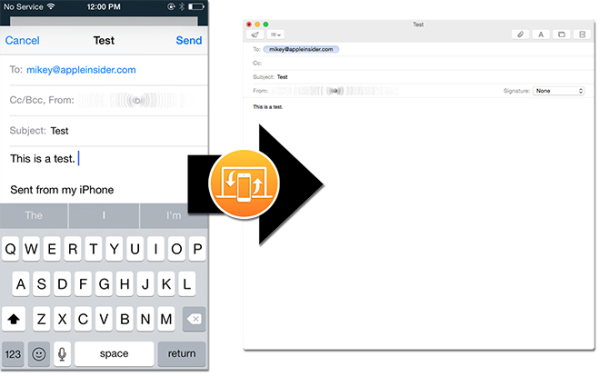Apple’s keynote at this year’s Worldwide Developers Conference confirmed (as if it were really ever in doubt) their spot at the top of tech. CEO Tim Cook spoke first, followed by Senior Vice President of Software Engineering Craig Federighi and his eighty-minute presentation of attractions packed into the coming OS X 10.10 Yosemite and iOS 8. There’s improved operating system aesthetics, huge application updates, and something they call “Continuity”. The first two of those are nice, improve on an already-nice, industry-leading product, but the third part is a big deal. Continuity is Apple’s push for complete and seamless integration of OSX and iOS, of its desktop and mobile platforms. With Continuity, you can search Safari on your desktop and pick up the search exactly where you left it with your iPhone with a feature called handoff; with iCloud Drive, you can easily work on projects, be sure any project-edits will save and hold across platforms, pick up on them whenever, and you can organize the cloud space however you like; Continuity allows you to pass a call from your iPhone to your computer. Working on one is working on the other.

 I know I’ve covered using passphrases in the past, but it warrants touching on again. The two most important aspects of a “password” are length and randomness. The amount of
I know I’ve covered using passphrases in the past, but it warrants touching on again. The two most important aspects of a “password” are length and randomness. The amount of